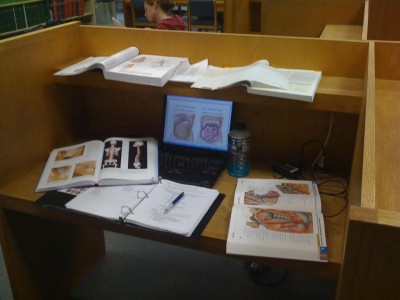How to Study in Medical School

In college, there are a few exams per semester, and the material is limited. You can cram for these exams, but in medical school, you must take multiple exams every three to four weeks and cover much of the same material as the college final exam. As a result, med school exams can be overwhelming. The key is to develop high-yield study skills. Learn how to memorize material quickly.
Exams
One of the best ways to study for med school exams is to create your own private study palace. You can use a room in your home, a library cubicle, or a combination of both. You can minimize distractions with electronic devices, and get assistance whenever necessary. You can also ask for help from fellow students, who are often struggling with the same material. Here are some ways to find the right study place for you.
One of the most common mistakes students make when studying for med school exams is to focus only on reading notes and slides. While these can help, a lot of information is often overlooked. Instead, make sure to use a combination of materials to memorize the information. Ultimately, you’ll need to find a study aid that works best for you. Listed below are some effective study aids. If you want to improve your chances of passing your med school exams, make sure to utilize these tips!
Study techniques
While attending medical school, you will find that there are many study techniques that can help you succeed. A common recommendation is to study regularly. But, studying alone is not enough. You must also adapt your study techniques to fit the course you’re taking. For example, one method may not work for a course on genetics, but it’s likely to be effective for a lecture on gross anatomy. Moreover, you should make an effort to read as much as possible.
One study technique is to make your notes short and simple. It is not sufficient to write in full sentences when taking notes; doing so can make you lose focus. Remember that your lecture notes are the backbone of your USMLE and MCCQE study. You should take time to study your lecture notes. And, if you don’t like to do this, there are also tons of flashcards available. Try out as many as you can to find the one that works for you.
Developing high-yield study skills
Developing high-yield study skills is important for students in medical school. Compared with undergraduate students, who are expected to devote a total of more than ten hours per week to their coursework, med school students spend only about half that amount. In a study by Winston et al., students who were considered at-risk were not significantly improved in their study skills after large-group workshops. Consequently, the need for specialized study skills is greater than ever.
While making flashcards is necessary, it can be counterproductive to create too many. Too many flashcards are not as effective as reading a text, so you must be careful to create a set of high-yield study materials. Aim to make 20 flashcards per exam. Ultimately, this amount of time will depend on the difficulty of the exam and the number of topics you need to review.
Developing a memory for material
The most effective way to develop a memory for material in medical school is to learn in small groups. This way, you’ll get the benefit of teaching others as well as getting help from fellow students. If you’re not a student, consider becoming a teacher in an informal setting. Some universities have journal clubs that ask medical students to present their work. By telling students that they’re going to teach them, they’re more likely to remember material during exams.
Another good way to develop a memory for material in medical school is to practice staying organized. Medical school is a rigorous undertaking, which can leave students feeling overwhelmed. Even students who performed well in undergraduate programs can get into bad study habits that won’t serve them well during med school. Students who don’t keep a routine of studying for exams and tests can be prone to forgetting material. By setting up a schedule and sticking to it, students will be more likely to stay motivated and productive in medical school.